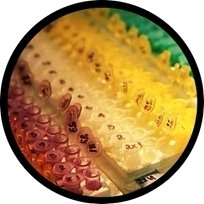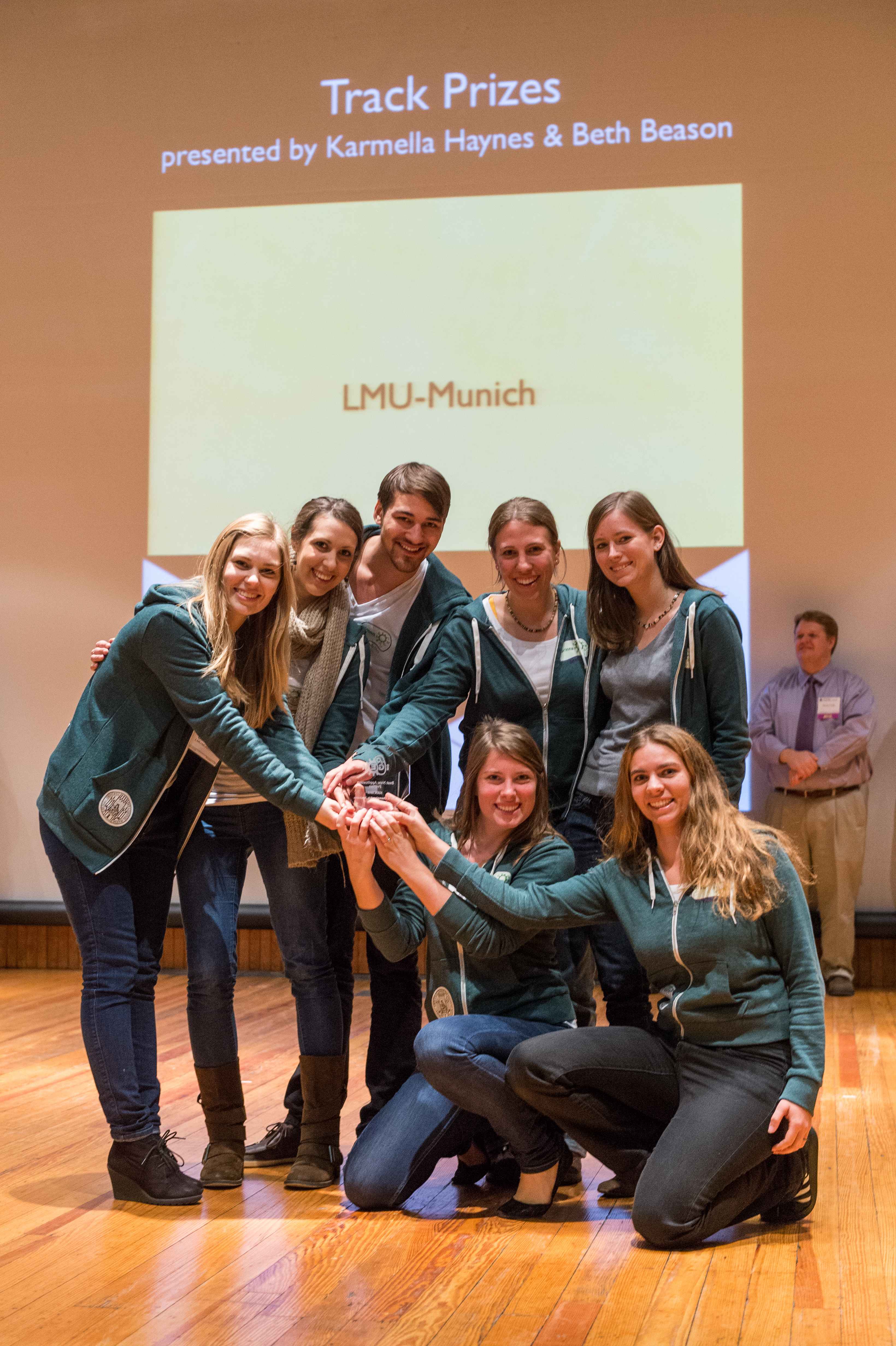Team:LMU-Munich
From 2012.igem.org
| Line 5: | Line 5: | ||
<div class="fullbox" style="width: 400px;"> | <div class="fullbox" style="width: 400px;"> | ||
| - | + | ==Team Background== | |
We are the iGEM team of the Ludwig-Maximilians-University (LMU) in Munich. The team consists of 10 dedicated members: 7 students and our 3 advisors. | We are the iGEM team of the Ludwig-Maximilians-University (LMU) in Munich. The team consists of 10 dedicated members: 7 students and our 3 advisors. | ||
</div> | </div> | ||
| + | |||
[[File:LMU-Munich_team.png|400px|right]] | [[File:LMU-Munich_team.png|400px|right]] | ||
Revision as of 13:35, 25 April 2012

The LMU-Munich team is exuberantly happy about the great success at the World Championship Jamboree in Boston. Our project Beadzillus finished 4th and won the prize for the "Best Wiki" (with Slovenia) and "Best New Application Project".
[ more news ]

Team Background
We are the iGEM team of the Ludwig-Maximilians-University (LMU) in Munich. The team consists of 10 dedicated members: 7 students and our 3 advisors.
Project Abstract
Our project will combine the idea of biological "beads" with the production of endospores in the gram-positive bacteria Bacillus subtilis. Our goal is to induce the production of specific proteins on the outer surface of B. subtilis endospores, and knock out spore germination-inducing genes such that the spores can be used as beads, without the ability to germinate.
B. subtilis spores are particularly suited to be used in industrial-type applications as "beads" due to their resistance to extreme heat, cold, to dessication and disinfectants, and even to radiation.
Each B. subtilis cell produces only one endospore -- in addition to developing our altered strain, we must work to ensure a dependable supply, since we will be removing one of their means of reproduction.
Beadzillus
We want to create Bacillus subtilis spores with different hybrid proteins on their outermost spore coat layers for multiple purposes. As a safety consideration, we want to disable the spores from germination. To provide the Parts Registry with thoroughly evaluated BioBricks, we want to adapt B. subtilis vectors compatible for the BioBrick system and characterize different promoters.
 "
"





